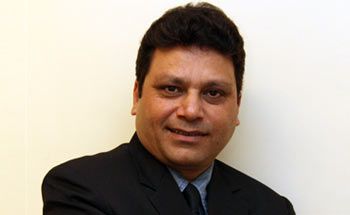
* Base expansion was of focus area in 2010
The Indian Performing Right Society Limited (IPRS) protects the right in the musical & literary work of its members by licensing and distributing the royalties for public performances of their copyrighted work. IPRS licensees encompass all who want to perform copyrighted music publicly. IPRS makes giving and obtaining permission to perform music simple for both hundreds & thousands of owners and creators of music both Indian and International, to music users.
The General Public Performance, in the last four years has shown a growth of 30-35% on a yearly basis, which is reasonably decent.
Public Performance Licensing is a tough job, where a user of music is free to pick up a CD, iPod, radio, TV and play music in the premises and does not even have the understanding of the Copyright Act 1957 which says that he cannot play it legally without obtaining a license and paying the required license fees. Enforcement of our right and asking the user to obtain a license is easier said than done. It is strange that only with the strength of 50 licensing personnel across the country we have made reasonable progress in licensing key premises and Events.
Irrespective of their aggressive and unkind behavior, the strength of IPRS is adopting a friendly approach with the users and also the in the way the licensing team is educating the users. Even though there have been instances of manhandling and abusing our licensing executives /personnel, the performance and approach of the IPRS team is not affected
The key strategy for this year was expansion of our base from 12 Cities to 23 Cities which helped in the licensing field to establish more visibility by physically visiting all the users from Hotel, Restaurants, and Stores to Shops. Awareness is important in our kind of work, but Print and Television advertisement or radio ad spots are expensive, so we use them judiciously.
We have adopted the method of multiple visits and simultaneously sending letters to the users and if the user obtains a license after such visits and letters then as a last resort we send legal notices to them.
There are users who understand and respect the copyright law and take the requisite license, but there are innumerable educated users who do not want to obtain a license for playing music. As these users have strong local police and political support, they feel that when they do not pay or evade income tax, sales /local tax or steal electricity then the music license fees is nothing,
We do not leave the errant users who avoid payment of royalty. We send legal notices to such errant parties and as a last resort file the legal suit against them, except in cases of Events & Performances were-in legal action is taken immediately before such Event/ Performance. There have been numerous instances where we have filed legal suits and obtained injunction orders against the premises/Users/Events. To name a few it is the Swabhumi-Kolkatta, Guwahatti Town Club, Marriott Hotel Ludhiana & Sarao Hotel Mohali.
The retail market in India is 11 to 12 Million, out of which 95% is of the unorganized sector and 5% is of the organized. We believe that 10-15% of the organized retail use music in their retail outlets, which means around 60-90,000 outlets should be taking license for playing music. This is not the case; it implies that there is tremendous scope for growth. We also plan to work with major retail chains on the power of music research which has proven that playing music helps retain consumers in the retail premises and makes shopping a pleasure which yields higher sales value from the consumer in that retail outlet.
We have also ventured in newer cities like, Agra, Varanasi, Jaipur, Udaipur, Indore, Ahmedabad, Surat and Vadodara etc which has helped in spreading our wings to tap into hither to unlicensed markets their-by tapping newer licenses and revenue.
Press has been an integral part of our growth & awareness strategy. The press meets and interaction in these new cities has helped in spreading awareness about the role of IPRS which insist to obtain license for playing music in these cities
We keep looking at various strategies to maximize the database of users by mapping the market and converting the same into licenses.
The year 2011-12 would see lot more actions related to public awareness for the Public Performance licenses, market proliferation and we hope a real boost in the revenue for our members.